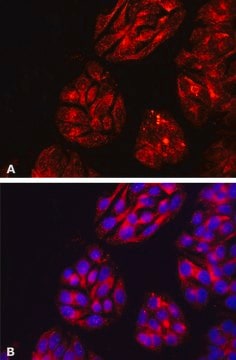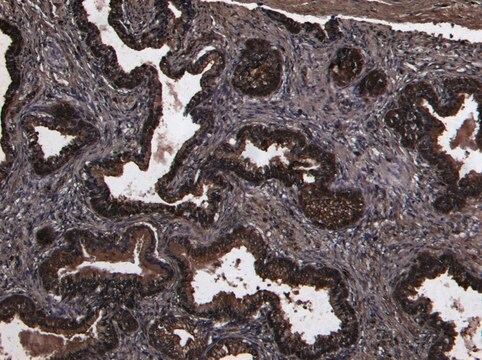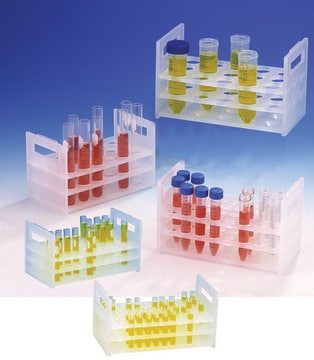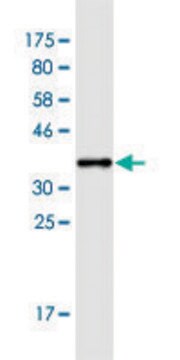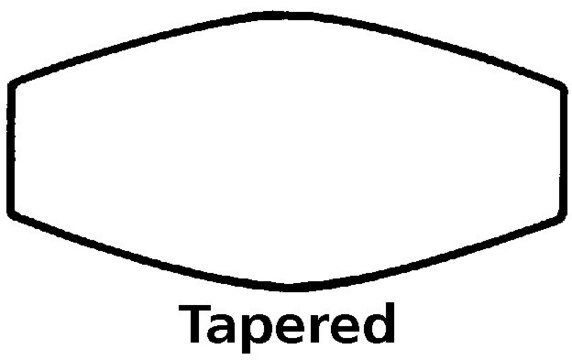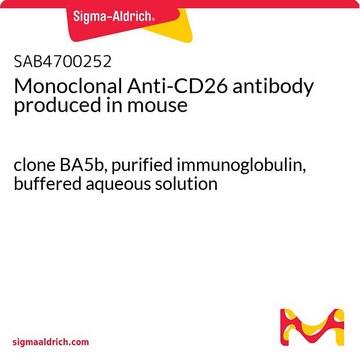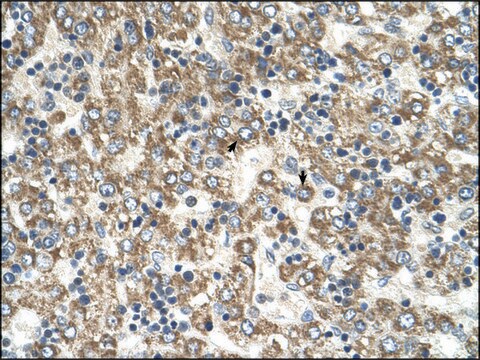MABS2291
Anti-DPP4/CD26 Antibody, clone KU44.13A
About This Item
Produtos recomendados
fonte biológica
mouse
Nível de qualidade
conjugado
unconjugated
forma do anticorpo
purified antibody
tipo de produto de anticorpo
primary antibodies
clone
KU44.13A, monoclonal
peso molecular
calculated mol wt 88.28 kDa
purificado por
using protein G
reatividade de espécies
human
embalagem
antibody small pack of 100 μL
técnica(s)
ELISA: suitable
flow cytometry: suitable
immunofluorescence: suitable
immunohistochemistry (formalin-fixed, paraffin-embedded sections): suitable
immunoprecipitation (IP): suitable
Isotipo
IgG2κ
sequência de epítopo
Extracellular domain
nº de adesão de ID de proteína
nº de adesão UniProt
Condições de expedição
2-8°C
modificação pós-traducional do alvo
unmodified
Descrição geral
Especificidade
Imunogênio
Aplicação
Evaluated by Flow Cytometry in HPAF-II cells.
Flow Cytometry Analysis: 1 μg of this antibody detected DPP4/CD26 in one million HPAF-II cells.
Tested Applications
Immunofluorescence Analysis: A representative lot detected DPP4/CD26 in Immunofluorescence applications (Arias-Pinilla, G.A., et al. (2020). Sci Rep. 10(1):537).
Immunoprecipitation Analysis: A representative lot immunoprecipitated DPP4/CD26 in Immunoprecipitation applications (Arias-Pinilla, G.A., et al. (2020). Sci Rep.10(1):537).
ELISA Analysis: A representative lot detected DPP4/CD26 in ELISA applications (Arias-Pinilla, G.A., et al. (2020). Sci Rep. 10(1):537).
Flow Cytometry Analysis: A representative lot detected DPP4/CD26 in Flow Cytometry applications (Arias-Pinilla, G.A., et al. (2020). Sci Rep. 10(1):537).
Immunohistochemistry Applications: A representative lot detected DPP4/CD26 in Immunohistochemistry applications (Arias-Pinilla, G.A., et al. (2020). Sci Rep. 10(1):537).
Note: Actual optimal working dilutions must be determined by end user as specimens, and experimental conditions may vary with the end user
forma física
Armazenamento e estabilidade
Outras notas
Exoneração de responsabilidade
Não está encontrando o produto certo?
Experimente o nosso Ferramenta de seleção de produtos.
Código de classe de armazenamento
12 - Non Combustible Liquids
Classe de risco de água (WGK)
WGK 1
Ponto de fulgor (°F)
Not applicable
Ponto de fulgor (°C)
Not applicable
Certificados de análise (COA)
Busque Certificados de análise (COA) digitando o Número do Lote do produto. Os números de lote e remessa podem ser encontrados no rótulo de um produto após a palavra “Lot” ou “Batch”.
Já possui este produto?
Encontre a documentação dos produtos que você adquiriu recentemente na biblioteca de documentos.
Nossa equipe de cientistas tem experiência em todas as áreas de pesquisa, incluindo Life Sciences, ciência de materiais, síntese química, cromatografia, química analítica e muitas outras.
Entre em contato com a assistência técnica
